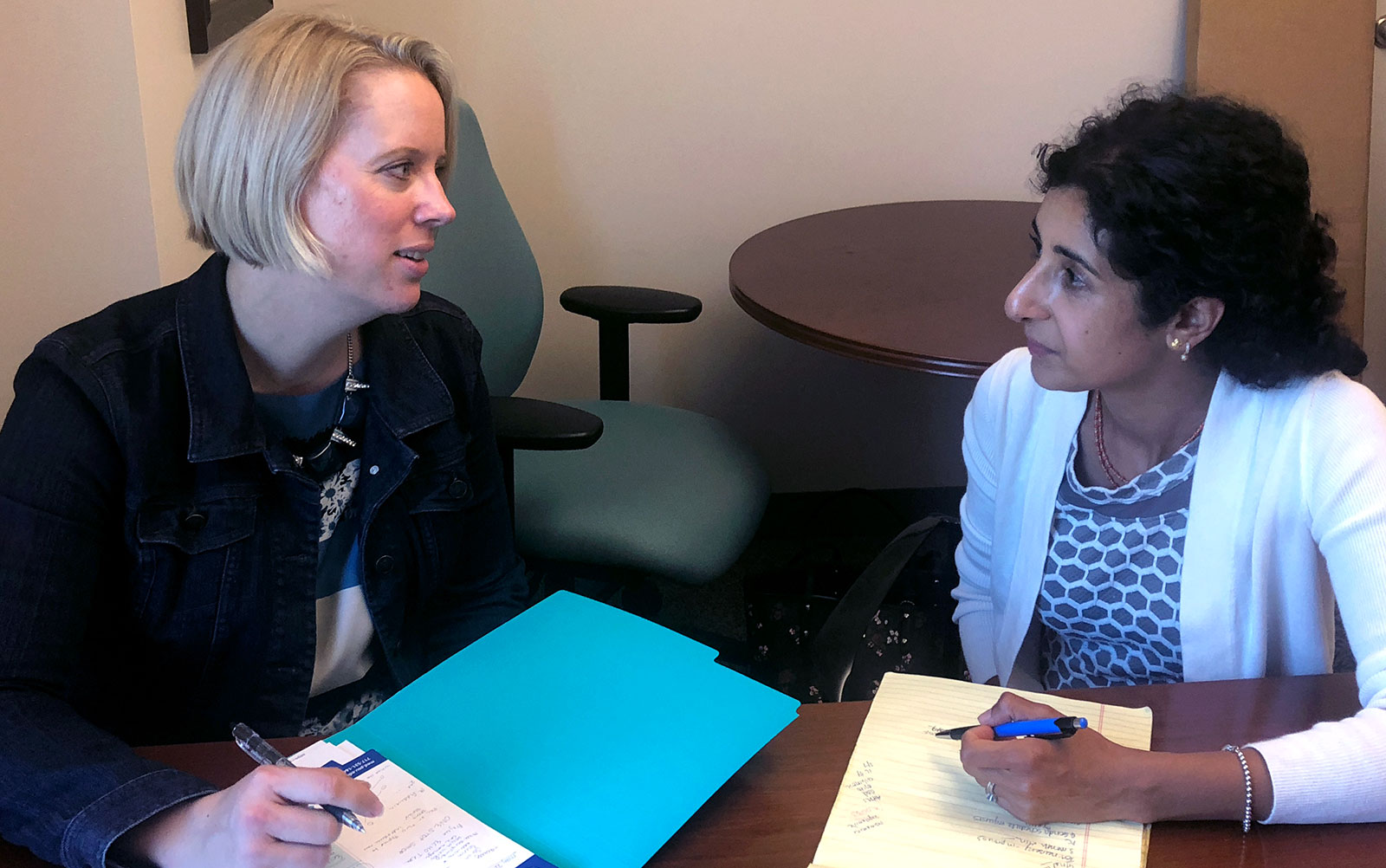Community Engagement Studios used for development of universal depression screening project

Penn State College of Medicine’s Dr. Deepa Sekhar will partner with six urban Pennsylvania public high schools and involve more than 9,000 students in research to address the rise of depression and suicide in children. Sekhar’s team is studying use of a school-based screening for clinical depression and was recently awarded a three-year, $2 million funding award from the Patient-Centered Outcomes Research Institute. The project was developed with help from Penn State Clinical and Translational Science Institute’s Community Engagement Studios.
Clinical depression, also called major depressive disorder, has symptoms that include intense feelings of sadness, irritability, loss of interest in activity that is typically enjoyed and the inability to perform day-to-day activities. Doctors and other medical professionals identifying depressed adolescents has not been enough. Only 2 percent of doctor’s office visits include the screenings, even though the United States Preventative Services Task Force recommends universal depression screening for 12- to 18-year-olds.
“Most teenagers don’t visit a primary care provider for routine medical care, so we’re not seeing the majority of adolescents who might benefit from the screening,” Sekhar, associate professor of pediatrics, said, also noting a time issue with a standard visit. “We need to engage with communities outside of the medical office to really be successful with mental health. Fifteen minutes for a sick visit – that’s great. I can address an ear infection in 15 minutes. But really helping out a child who has depression or anxiety symptoms is hard to do in a time frame like that.”
Sekhar’s project was designed by working closely with the community she is trying to help through the Clinical and Translational Science Institute’s Community Engagement Studios. These two‐hour sessions with eight-to-twelve community members give a researcher input in the early phases of developing a study proposal. For Sekhar’s study, a team was assembled that included teenagers, parents, school staff, the leaders of two mental health and suicide prevention organizations, a behavioral health managed care company representative, and the project director of Pennsylvania’s Garrett Lee Smith Youth Suicide Prevention Grant. Through this program, Sekhar strengthened her idea which has led to the latest funding and also funding from the Health Resources and Services Administration.
“The Community Engagement Studio really helped me to address initial grant reviewer comments with community input,” Sekhar said. “Instead of just me responding to their comments, I was really able to highlight our community members’ perspectives and commitment to the proposal.”
In the study, Sekhar’s team will first work with students, parents and school staff to identify their views about mental health so that concerns about the program can be addressed. They will also locate community-based mental health resources that can handle an expected increase in diagnoses through the screening.
Students in two of the four grades at each school in the study will then be randomly assigned to be screened for depression through use of an established questionnaire. Students in the other two grades will go through their school year as usual, receiving screening and support through Pennsylvania’s state-mandated Student Assistance Program only if they’ve been flagged for concerning behavior.
After the screenings have taken place, the researchers will analyze the data to learn if using the questionnaire had an effect on identification of depression, students getting treatment, school attendance, grade point average and graduation rates. The researchers will also meet with students, parents and school staff to get their feedback on the program.
“I want to get a sense from the schools and communities about whether this was something that was valuable and sustainable,” Sekhar said.
Patient-Centered Outcomes Research Institute is an independent, nonprofit organization authorized by Congress in 2010. Its mission is to fund research that will provide patients, their caregivers and clinicians with the evidence-based information needed to make better-informed healthcare decisions.
Community Engagement Studios are conducted through Penn State Clinical and Translational Science Institute’s Community-Engaged Research Core. The Community Engagement Studio is a one-time, two-hour meeting where community members give feedback and advice to improve research projects. A studio provides a cost-effective and time efficient method to enhance current research practices and improve upon dissemination. To learn how a studio can help a project, submit a Service Request Form.
If you're having trouble accessing this content, or would like it in another format, please email the Penn State College of Medicine web department.
